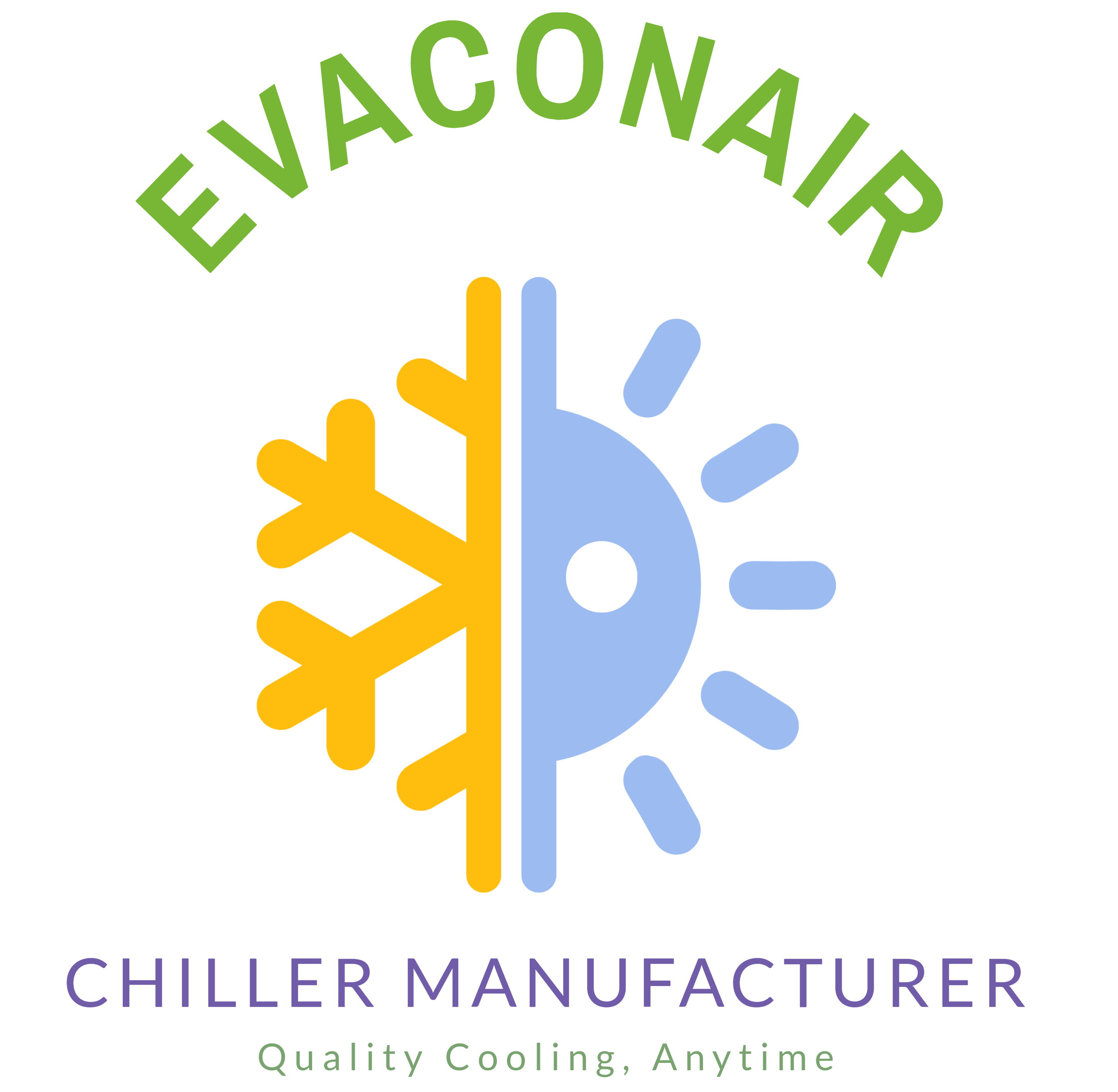Blog
What is the Role of a Chiller Technician?
A chiller technician is a specialized professional responsible for the installation, maintenance, repair, and overall operation of chiller systems. These systems are critical in a variety of industrial and commercial settings, including HVAC systems, manufacturing plants, and processing facilities. The technician ensures that chillers operate efficiently and reliably, preventing downtime and maintaining optimal temperatures for equipment and processes.
Key Responsibilities of a Chiller Technician
- Installation and Setup
- Install Chiller Systems: A chiller technician installs different types of chillers, such as Air-Cooled Water Chillers and Water-Cooled Screw Chillers. This involves setting up the equipment, connecting it to the necessary power and water supplies, and ensuring that it is correctly configured for the specific application.
- Work with Manufacturers and Dealers: The technician collaborates with Chiller Manufacturers In Ahmedabad and Chiller Dealers In Ahmedabad to select and procure the appropriate chiller units for a given project.
- Maintenance and Troubleshooting
- Perform Routine Maintenance: Regular maintenance is crucial for the longevity and efficiency of chiller systems. A chiller technician is responsible for checking fluid levels, inspecting components like the Mold Temperature Controller, and ensuring that all parts are functioning correctly.
- Diagnose Issues: When a chiller system malfunctions, the technician diagnoses the problem by inspecting the system, running diagnostic tests, and identifying the root cause of the issue.
- Repair and Replace Parts: If parts are worn out or damaged, the technician repairs or replaces them to restore the chiller to optimal operation. This can involve working with auxiliary equipment like Hot Air Dryers and Dehumidifiers.
- System Operation and Monitoring
- Operate Chiller Systems: The technician is responsible for starting, monitoring, and shutting down chiller systems according to operational needs. They ensure that the systems run within the specified parameters and adjust settings as necessary.
- Monitor Performance: Regular monitoring of the system’s performance is essential. This includes checking temperature, pressure, and flow rates to ensure the chiller is operating efficiently.
- Safety and Compliance
- Ensure Safety Standards: Chiller technicians must adhere to safety standards, especially when handling refrigerants and high-voltage components. They ensure that all operations comply with local regulations and industry best practices.
- Environmental Compliance: Technicians also ensure that the chiller systems operate in an environmentally responsible manner, particularly when dealing with refrigerants that could impact the ozone layer.
- Documentation and Reporting
- Maintain Records: A chiller technician keeps detailed records of all maintenance, repairs, and operational activities. This documentation is essential for tracking the system’s performance over time and planning future maintenance schedules.
- Report to Management: The technician provides reports to management, outlining any issues, repairs conducted, and recommendations for system improvements or upgrades.
Skills and Qualifications
- Technical Knowledge: In-depth knowledge of various chiller systems, such as Air Cooled Screw Chillers and Water Cooled Water Chillers, is essential.
- Problem-Solving Skills: The ability to diagnose and resolve issues efficiently is critical in this role.
- Mechanical Aptitude: Strong mechanical skills are required to work with the various components of a chiller system.
- Safety Awareness: Understanding and implementing safety protocols is crucial, especially when dealing with refrigerants and electrical systems.
- Communication Skills: Effective communication with team members, management, and external vendors is important for coordinating maintenance and repairs.
Conclusion
The role of a chiller technician is vital in ensuring that chiller systems operate efficiently and effectively. From installation to maintenance and repair, these professionals play a key role in maintaining the cooling processes that are essential for various industries. Whether working with an Air-Cooled Water Chiller In Ahmedabad or a Water Cooled Screw Chiller In Ahmedabad, a skilled chiller technician ensures that the systems run smoothly and reliably. For more information on chiller systems and maintenance, visit our products page.
